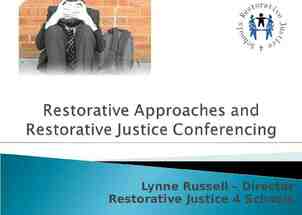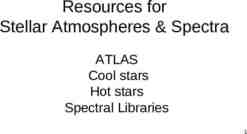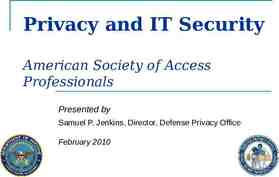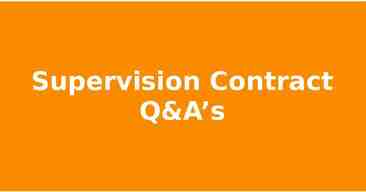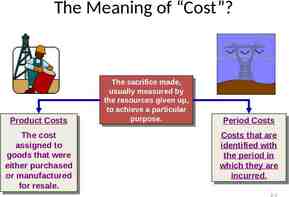2016 Purchasing Card Conference October 21, 2016
68 Slides3.13 MB

2016 Purchasing Card Conference October 21, 2016

Welcome! Schedule Breakout Session Specific questions

JP Morgan Presenters Reconcilers Approvers Prize Donors – Athletics – NAU Bookstore

FY16 Statistics Overall Spend: 26,843,118.92 Transactions: 54,3654 Active Cardholders: 897

Surprise! New chip cards! Déjà vu? JPMC Processor Conversion – Cards could decline at point of sale Details to follow on issuance. – March 2017 deadline for activation

Additional Training Opportunities Sign Up Sheets at the sign in table – November 2, 2016 – December 9, 2016 In depth training of Reconciliation processes Smaller group for specific questions

Compliance Review: How to Properly Spend University Funds and Other Guidelines Maureen Lintel Senior Buyer Contracting and Purchasing Services

Policies Legal Name: Arizona Board of Regents for and on behalf of Northern Arizona University NAU is a State institution State/Federal guidelines and laws NAU policies and procedures ABOR policies

In General Goods may be purchased on a P card Services may not be purchased on a P Card – Why? A Contract is needed to bind the insurance If a Contract is in place, the P Card can be used as payment.

Campus Policies All established policies and procedures must be followed when purchasing on a P Card. Policies originate from many areas on campus, not just Purchasing.

Exceptions! Who approves an exception request? What does policy state and what office “owns” that policy? Purchasing ITS Comptroller Travel Marketing

Restricted Purchases PUR 801-03-02 – Alcoholic Beverages – Amazon (Including Prime memberships, Business accounts, Mechanical Turk) – Bottled Water – Business food on a State account – Computers – Employee appreciation/recognition items/gifts – Entertainment – Flowers – Meals-Travel related – Personal Purchases – Printing – Purchases where a conflict of interest exists – Splitting purchases to circumvent spending limits – TSA Pre-check For a complete list, visit PUR 801-03-02 Exceptions may apply!

Example Flowers – CMP 401-03 Flowers. All types, unless the items are needed in conjunction with an official University event. Authorized purchases for flowers must be paid from local funds. – If the flower purchase falls within the CMP policy, it is an allowable purchase. If it does not, an exception would have to be requested from the Comptroller’s office.

Example 2 Computers – All computer purchases must follow ITS Computer Purchasing and Standardization Policy. – All exception requests must be submitted to the Computer purchasing manager.

Example 3 Gifts, Gift Certificates and Awards: Restricted purchase unless they meet the criteria of CMP 401-03. – An exception would have to be requested by the Comptroller office to proceed with the purchase. If granted, the P Card is an allowable payment method.

Violations Improper card use by others Multiple/Split Transactions Not Approved by Deadline Not Verified by Deadline Other Personal Purchase Restricted Commodity

NOV Form http ://nau.edu/Contracting-Pu rchasing-Services/Forms/

Entering Violations in PeopleSoft

Violation Examples Split Transactions – Spot Audits Completed daily by the P Card Administrator – Decline Report Ability to identify questionable transactions Increases are fast and easy, just contact us if you are anticipating a large purchase!

Personal Purchases – Amazon, iTunes, Fed Ex We strongly recommend creating a separate account with your NAU information for these purchases to avoid an accidental charge. Restaurants, clothing stores Keep your P Card stored separately from your personal card. Pick up a card sleeve at the check in desk! Two personal purchases within two years will result in revocation of your P card privileges.

All transactions posting in PeopleSoft Financials are subject to policy. – Example: Alcohol can be purchased under certain circumstances through the Foundation. However, you can NOT purchase alcohol on the P Card and then reimburse with Foundation funds. This would be considered a restricted commodity violation.

Food Purchases-CMP 420-02

PeopleSoft Financials At a minimum, Reconcilers are required to verify their transactions in PSF and provide the public purpose and supporting documentation. Check with your Approver for department specific requirements of the reconciliation process.

Public Purpose What is the purpose of what was purchased? How does this purchase serve the best interest of the University? Description is the actual good or service that was purchased. Public purpose is the reason.

Examples Description: Office Supplies Public Purpose: Office supplies for building 98B for general office staff use. Description: Airplane ticket Public Purpose: Airplane ticket for Louie the Lumberjack to travel to Chicago, IL for the annual mascot convention.

Audits Auditors have access to PSF to review transaction documentation and the description/public purpose information. Be as detailed as possible.

If you are unsure about a purchase just ask! Please contact us at [email protected] or 928-5234557. We are happy to answer your questions or point you in the right direction.

Marketing and Strategic Communications Please refer to “Marketing Materials” at : http ://nau.edu/Contracting-Purchasing-Services/Training/ .

“HOW WE SEE IT” PCARD ADMINISTRATORS PROCESSES Speaker: Samantha Cayo

PEOPLESOFT FINANCIALS PCARD ROLES Reconciler: an NAU employee who has been issued an NAU Purchasing Card (“PCard”). Approver: the NAU employee who has been authorized to monitor and approve PCard activity for assigned Reconcilers. Administrator: a Purchasing Services employee responsible for performing functions and executing operations of the NAU Purchasing Card Program.

PCARD ADMINISTRATOR RESPONSIBILITIES Processing applications for new Reconcilers and new Approvers Ordering new cards from JP Morgan Chase Entering new Pcard account numbers into PeopleSoft Financials Adding or updating speedcharts on Reconcilers’ accounts Assigning new Approvers to Reconcilers’ accounts Closing out/canceling Reconciler accounts Monitoring the University’s Pcard transactions for compliance and fraud Processing temporary spending limit increases Responding to questions and providing instruction on the reconciliation process Downloading new transactions into PeopleSoft Financials Completing the Post Payment process at the end of each Billing Cycle Providing training to other departments Processing Notification of Violations (NOVs)

NEW PCARD APPLICATIONS We first review applications for any missing information If your department has multiple Approvers, please provide their names and User IDs in the margins of the form or in your email We enroll the applicant in the BBLearn training and send out an email notification Transit time is 7-10 business days from the date the card was ordered. New cards are ordered after the training is passed with a 100% score.

ASSIGNING A SPEEDCHART TO A CARD Speedcharts are added to Reconciler accounts. It is necessary to go into each specific Reconciler account to manually add or remove new Speedcharts. To request that a new Speedchart be added to a Pcard account, email [email protected] and include the name(s) and Employee ID #(s) of the Reconciler(s) as well as the Speedchart key somewhere in your email. Speedcharts are not automatically purged from accounts when they expire. If you email us, we can also delete Speedcharts that are no longer needed to help clean up your account(s).

ASSIGNING AN APPROVER TO A CARD Pcard Approvers are required to complete additional training through BBLearn, as well as submit an Epass security request through Louie to obtain the PeopleSoft Financials Approver role. Once the Epass has been approved, Purchasing Services will need to assign the new Approver to specific Reconcilers. Please include a list of users for which you will be approving when you submit your Approver agreement.

TEMPORARY LIMIT INCREASES Submit a completed Pcard Change/Exception Request form AND a copy of the quote to [email protected]. Spending limit increases are entered on the JP Morgan Chase website. If the merchant does not run your card by the Limit End date, we will need to extend your increase or the transaction will decline. Note: transactions should never be “split” into lesser amounts to circumvent a spending limit.

CLOSING PCARD ACCOUNTS Pcard Accounts should be promptly closed when an NAU employee is leaving the University. If possible, verify with the employee whether they are anticipating any pending charges. Please either complete the Pcard Change Request form and select “Delete/Close Account” or email [email protected] to request that the account be closed. The physical card can be shredded. If an employee is transferring to another NAU department and will still require a Pcard at their new position, then their account does not need to be closed, but can rather be updated with their new department’s information.

THE POST PAYMENT PROCESS The purpose of this process is to post Pcard transactions to departments’ general ledgers. The post payment process is completed on most Fridays, as well as at the end of every month. The Billing Cycle of Post Payment dates can be found on the CPS webpage. All “Approved” transactions that are in a valid budget status will be closed out and posted on the scheduled Post Payment dates. All remaining transactions will be closed during the Final Post Payment for the month. Once a Pcard transaction has been closed out in Peoplesoft Financials and posted, users will no longer be able to edit or redistribute the transaction, although documentation can still be uploaded to Onbase.

EXTERNAL PCARD FRAUD CONTRACTING AND PURCHASING SERVICES

What is it? External fraud is the unauthorized use of your account. It is any transaction that was made with a lost, stolen or counterfeit card/number. It is not an over charge or unexpected charge by a merchant. These are considered disputable charges and are not fraudulent. Cardholders can still dispute transactions with the bank but must first try to resolve the conflict with the merchant. JP Morgan Chase Dispute Department: 1-800-270-7760

It happens. 31.8 million U.S. consumers had their credit cards breached in 2014 45% Online 37% Counterfeit 14% Lost/Stolen U.S. Card Fraud by Type, 2014

How does it happen? Merchant’s network is hacked. Skimming. Phishing/Social Engineering.

Measures to Prevent Fraud 01. Secure Sites Only shop on or provide card information on secure HTTPS sites. 02. Clear Browser Clear browser cache after transactions are made. 03. Don’t Save Do not save card information with online merchants. 04. Don’t Lose Sight Try not to lose sight of your card when paying. 05. Keep Card Secured Keep card in a locked or secured place when not in use. 06. Review Transactions Review transactions often – not just at the end of the month.

What we do: Perform spot checks on recent transactions. Review declines report. If we see something questionable the PCard team will reach out to the cardholder for additional information.

What to do if you have a Fraudulent Transaction: Act quickly. Call the number on the back of your card to report the fraudulent transaction. *Remember to use the last four digits of your Employee ID (not your SSN). The cardholder will be asked to verify legitimate transactions with the bank. JPMorgan will close the account and begin the investigation. A new card will be issued and transactions will be transferred to the new account.

What to do if you have a Fraudulent Transaction: (Continued) Resolution and refunds can take up to 90 days. Reconcilers and Approvers will still need to verify the fraudulent transactions in PeopleSoft.

Cardholders are the first line of defense. As the cardholder you are most familiar with transactions on your account. If you see something suspicious or have concerns you can call us and we can temporarily suspend the account. Phone: 928-523-4557 E-mail: [email protected]

Transaction Privilege Tax and Use Tax Maureen Lintel

Definition Transaction Privilege Tax: Commonly referred to as sales tax. Tax on retail sale of tangible personal property and certain services. Tangible-can be touched, felt, tasted.

Definition Use Tax: Tax on use/storage/consumption of tangible personal property. Calculated at 5.6% Used when the purchase is otherwise taxable, but the vendor does not apply sales tax. – Example: Out of state purchases

Goods Goods are generally taxable unless they are specifically exempt.

Services Services are generally exempt unless they are specifically taxable.

Non-Taxable Transactions Professional/personal services Warranty services/service contracts Conference registration fees Professional membership dues Textbooks/course material Printed and other media materials (available to the public) by NAU library Unprepared food for human consumption Medically prescribed drugs, equipment or devices Purchase for resale Shipping services/freight charges – Not handling services

Non-Taxable Transactions Repair/maintenance and installation services – If separately disclosed on invoice Others as set forth in statues such as ARS 425061 or ARS 42-5159 – http://www.azleg.gov/ArizonaRevisedStatues.asp? Title 42

Machine/equipment used for research activity Purchase of machine/equipment used ONLY for research-not taxable Research does not include – Social science – Psychology – Computer software development – Non-technological activities or technical services Machine/Equipment does not include – Expendable materials – Office equipment, furniture and supplies

Chemicals used for research activity Chemicals used directly in research-not taxable Cannot be used or consumed in activities such as packaging, storage or transportation Researcher who orders the item must determine whether it is “chemical”

Internal Tax Exempt Form

AZ 5000

Common Issues Purchase from out of state vendor – Use tax is payable if the purchase was otherwise taxable Renting of personal property like furniture/cars – Taxable Subscription to an informational database – Not taxable

Use tax and PeopleSoft https://nau.edu/its/learn/psfinancials/pcard s tatement reconcil/ You must calculate the Use Tax amount and manually enter in Pulled monthly by dollar amount via Comptrollers Office

How to record Check the transaction to apply Use Tax on and select “Purchase Details”

Select Sales/Use Tax

Manually calculate the Use Tax amount (5.6%) and enter in the Use Tax field. Select OK.

Select OK and Save

To View: Select the distribution icon on the appropriate transaction. Choose the second tab Details/Tax and verify the amount under Use tax.

Forgot to apply Use Tax? If your transactions have closed and use tax was not applied as it should have been, an IDT can be submitted for the total amount to the Comptroller’s office.

Questions? If you are unsure how to apply use tax on a transaction, contact Tammy Laird. [email protected]

Additional Resources Comptroller Policy 120: http://nau.edu/Comptroller/ Forms/Policies/120/ ARS 42-5061 or ARS 42-5159 http://www.azleg.gov/ArizonaRevisedStatues.asp?Title 42


